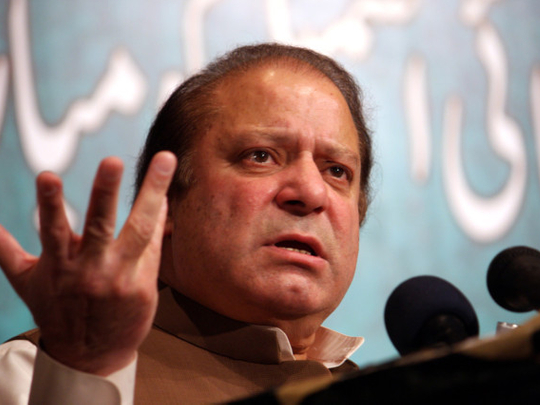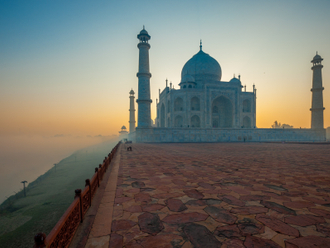
This year has thus far been one of building new bridges between Pakistan and the UAE. With passport delays of up to one year affecting tens of thousands of Pakistanis in the UAE and an agreement on prisoner repatriation on the table, Prime Minister Nawaz Sharif’s newly elected government has plenty to work on with the UAE’s leaders in the immediate short term.
Discussing the newly elected Pakistan Muslim League (N) (PML-N) National Council, Tariq Iqbal Somoro, Pakistan Consul General in Dubai, tells GN Focus: “For the first time in the history of Pakistan, a democratic government has transferred power to a newly elected leadership. This democratic transition means a lot to every Pakistani.”
Historic elections
With a new Pakistani administration taking office, a new Ambassador to the UAE will soon be named. At the time of going to press, there was no news on previous incumbent Jamil Ahmad Khan’s potential successor.
The historic election of Sharif, who will now bed-in for a third term as Pakistan’s Prime Minister (the previous two were truncated prematurely), has been greeted with optimism by the Pakistani diaspora in the UAE, Somoro says. “The Pakistani community in the UAE has warmly welcomed the return of Sharif to power [and] hopes the new government will do its best to fight the challenges of terrorism in the country besides reviving the national economy,” he says.
While Pakistan faces domestic challenges that range from sustained political turmoil in the face of daily extremist insurgencies to an energy crisis that prompts power outages that last up to 22 hours a day and to mounting public debt (currently more than 50 per cent of the value of Pakistan’s GDP is public debt, according to CIA World Factbook estimates), relations overseas are key to the new agenda.
And none are more important than the deeply historic affiliation with the UAE, which currently adds $2 billion (about Dh7 billion) of capital per year to Pakistan’s economy. “The new government will certainly solidify the existing bonds of friendship [with the UAE],” Somoro says. “As the PML-N is generally considered to be more supportive of trade and investment activity, it is hoped that special focus will be given to increasing the volume of bilateral trade and attracting investment from the UAE for various projects in Pakistan.”
Bilateral trade currently stands at $8.4 billion, which comprises more than ten per cent of all Pakistani bilateral trade and renders the UAE third on the list of global trading partners with Pakistan behind China and the European Union, according to European Trade Commission statistics. Some $6.4 billion of the two-way trade accounts for UAE exports to Pakistan.
Besides a healthy trading partnership, Pakistan and the UAE are working closely on humanitarian matters where crime and punishment is concerned.
As of July 30, the Agreement on Transfer of Sentenced Prisoners which was originally signed in February last year, has been ratified by the interior ministers of the two countries and could see up to 2,000 imprisoned Pakistanis return home. The landmark agreement will see convicted felons currently serving their time in UAE prisons repatriated to Pakistan to “help resolve the social and emotional problems of Pakistani inmates,” Soromo explains.“[They] would be sent to Pakistan closer to their home town where they would be able to see their loved ones frequently and will have a chance to plan for reintegration into society.”
Together the two states will draw-up a mechanism for categorising prisoners. The agreement stipulates that only prisoners charged with minor offences are eligible to be transferred back to Pakistan if at least six months of their sentence remains to be served. Major crimes including murder and fraud will not be considered under the accord.
Passport issue
While incarcerated Pakistanis will happily greet the development that they could be repatriated, tens of thousands of Pakistani expats in the UAE were feeling the opposite sentiment at the turn of the year. When the country’s Interior Ministry became unable to print passports towards the end of November last year —reportedly due to a shortage of laminated paper — up to 40,000 Pakistanis were effectively left stranded in the UAE. Some had been waiting for up to a year for machine-readable passports.
By May the backlog of passports had been cleared completely, thanks to the cooperation between the UAE and Pakistani interior ministries, Somoro explains. “In order to facilitate its citizens and overseas Pakistanis, the government authorised its missions abroad to extend the validity of the previous passports so that people could travel and have their residence visas renewed and would not worry about their jobs,” he says.
“The embassy spread the news among the community so people would not worry. During the period of the technical error, the embassy as well as the Consulate General revalidated more than 60,000 passports and not a single complaint of loss of job was received.”
The practice of passport extension was discontinued once the technical error was resolved in May. ■






